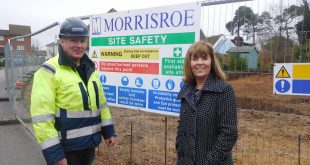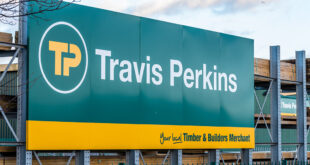Climate change is not the concern of just one or two nations. It is an issue that affects the whole of humanity and every living being on this earth
Reducing our reliance upon fossil fuels is a good thing. That seems to be a given. The Government certainly seems to think so as it announced in the Spring Statement that new houses would no longer be permitted to be heated using gas boilers from 2025.
That was after a report by the Climate Change Committee. However, it’s pretty obvious to anyone with an ounce of mathematical sense that most of the homes that people in the UK will be living in in 2025 have already been built.
The Climate Change Committee has belatedly realised this and is this week is going to stress in a report that something more needs to be done in the 29 million existing homes to move away from fossil fuel solutions. The committee, chaired by Lord Deben, who as John Gummer was environment secretary in John Major’s government, is expected to set a date between 2040 and 2060 by which Britain should reach “net zero emissions” of carbon. Reducing emissions produced by heating homes is going to be a key part of achieving the new target, the Committee is expected to emphasise.
All well and good but, as I’ve said before, removing people from their comfort zone of the white box on the wall, isn’t going to be easy. Sure, there are people who remember baths heated by an Ascot heater and rooms by a coal-fire but, by and large, they are my parents’ generation, not mine.
Newer technologies such as heat pumps, ground source or air, have their benefits but also their drawbacks, especially if we are talking about improving the efficiency of Victorian terraces. Heat pumps can be expensive to install and maintain and the fact the water is heated to a much lower temperature than a gas boiler, means they work better with underfloor heating than with standard radiators. Plus, the power required to operate them has to come from somewhere and chances are, that’s a gas-powered power station. We don’t have any coal ones anymore and the nuclear option is still eons away of Hinckley Point is anything to go by.
Ban all homes in the UK and electricity is going to be the default option in the short to medium term for heating houses. Yet, to produce the amount of energy needed to power this would require much, much more investment and preparation than we are currently capable of.
There is an easier, quicker way to start the ball rolling with reducing how much fuel we are using to heat out home. It won’t get the UK to beat its climate change targets on its own, but it would be a start.
The low hanging fruit is insulation. Go for the simply solutions first, then phase in the new generation of heating appliances as and when. In any case, with newer heat sources working at lower temperatures, houses are going to need to be better insulated anyway.
If only there was some kind of scheme that could encourage people to improve the efficiency of their homes by themselves, so they could be doing their bit so to speak. Some kind of Green scheme.
Oh.
 Builders Merchants Journal – BMJ Publishing to Builders Merchants and the UK merchanting industry for more than 95 years
Builders Merchants Journal – BMJ Publishing to Builders Merchants and the UK merchanting industry for more than 95 years



